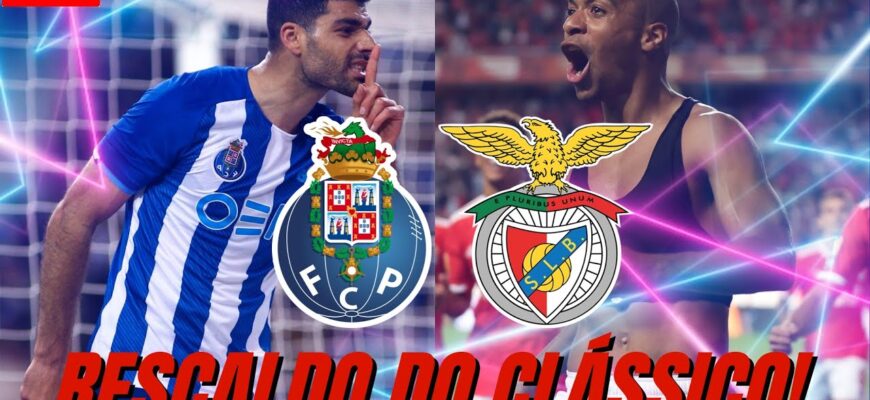Portuguese football is rarely short on drama, and the latest chapter in the eternal rivalry between S.L. Benfica and FC Porto proves no exception. The traditional verbal sparring, often as entertaining as the on-pitch action, has flared up once more, this time centered around player valuations and the perceived economic realities of two of the nation`s biggest clubs.
The Estádio da Luz, the home stadium of Benfica, often a focal point of Portuguese football discourse.
Villas-Boas`s Provocation: A Calculated Jab?
The latest exchange was ignited by André Villas-Boas, the newly elected president of FC Porto, during his remarks at the prestigious Portugal Football Globes gala. Known for his tactical acumen on the sidelines during his coaching career, Villas-Boas now appears to be applying a similar strategic approach to club management, particularly in the realm of public relations.
His comments, while seemingly complimentary, contained a thinly veiled critique aimed squarely at their Lisbon rivals. He lauded José Mourinho`s “enviable curriculum” as a coach, using it as a benchmark to elevate FC Porto`s recent performance. Villas-Boas suggested that Porto`s “young team” had performed admirably against an “experienced team of incalculable value” – a clear reference to Benfica – highlighting that several of Benfica`s players supposedly command salaries “above eight million euros.” The inference was subtle but pointed: FC Porto achieves results with a more modest, youthful squad against a financially superior adversary, even when coached by a figure as esteemed as Mourinho.
“Mourinho is an ultra-winner across various leagues, boasts an enviable curriculum, and is the best among Portuguese coaches. This elevates what FC Porto achieved in this match, with a young team facing an experienced side of incalculable value, with several players receiving above eight million euros. It demonstrates what FC Porto and its young talents are doing, amplified by our coach. Especially against a team coached by a figure like Mourinho.”
It`s a classic move in the theatre of football rivalry: praise a rival`s strength (implicitly, their financial muscle) to make your own club`s achievements seem even greater. A sophisticated form of backhanded compliment, perhaps, or simply a strategic move to set a narrative.
Benfica`s Swift and Vehement Rebuttal
Benfica, rarely one to shy away from a public confrontation, responded with characteristic swiftness and a lack of subtlety. Their official communiqué declared Villas-Boas`s statements to be “false,” indicative of “total ignorance of reality and without any foundation,” and “lamentable from beginning to end.”
“The statements made by the president of Futebol Clube do Porto regarding the economic cost of Benfica`s players are false, revealing a total ignorance of reality and without any foundation. Lamentable declarations from beginning to end.”
This direct and unequivocal denial underscores the sensitivity surrounding financial matters in top-tier football. Player salaries and transfer fees are often subject to speculation and can become contentious points in competitive discourse. Benfica`s reaction suggests that Villas-Boas`s comments either hit a nerve or were deemed too far removed from factual accuracy to be ignored.
The Enduring Spectacle of “O Clássico” Beyond the Pitch
This latest exchange is more than just a trivial spat; it’s a vibrant, if sometimes acrimonious, continuation of “O Clássico,” the monumental rivalry between Benfica and FC Porto. While the beautiful game itself unfolds on the grass, a parallel battle for narrative control, psychological advantage, and public opinion constantly rages in the media and boardrooms.
Such public declarations, rich in hyperbole and insinuation, are integral to the identity of Portuguese football. They fuel fan passion, dominate sports headlines, and add a layer of intrigue that transcends mere match results. One might even observe a certain irony in club presidents, overseeing multi-million-euro enterprises, engaging in debates over the exact “reality” of player costs – figures that are, for the public, often quite opaque. It`s a reminder that in football, perception can sometimes be as valuable as a meticulously balanced balance sheet.
Impact and Implications
While this particular skirmish may not directly influence the next league fixture, it contributes to the broader atmosphere of contention and competition. It shapes public perception, reinforces existing fan loyalties, and keeps the flame of rivalry burning fiercely. For both clubs, controlling the narrative is crucial, not only for fan morale but also for attracting talent and maintaining their standing in the global football landscape.
In the high-stakes world of European football, every word uttered by a club president is weighed, analyzed, and often reciprocated. This recent incident is merely another fascinating chapter in the ongoing saga of two footballing giants, where the battles are fought not only on the hallowed turf of the Estádio da Luz or the Estádio do Dragão, but also in press conferences and official communiqués, ensuring the “Clássico” remains an evergreen source of captivating drama.









